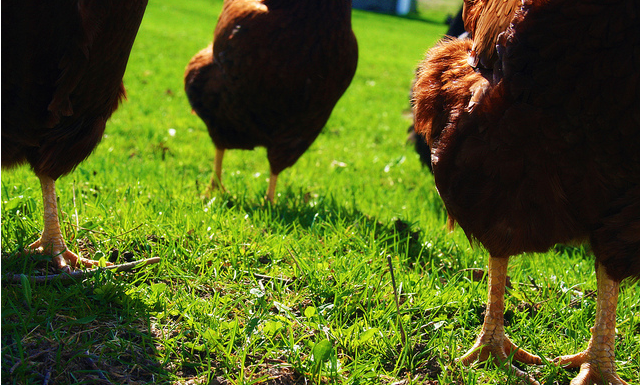Let’s Not Freak Out, But A New Bird Flu Has Jumped To Humans For The First Time

(PepOmint)
The one person who reportedly contracted the bird flu lives is a Taiwanese woman who works in a deli and had no known connection to birds, so it’s unclear how exactly she was infected, reports the Associated Press. None of her close family or friends were infected however, a positive sign.
She went to the hospital with a lung infection in May and was treated with Tamiflu and antibiotics before she was released. Later one of her throat swabs was sent to the Taiwan Centers for Disease Control, where it was identified as H6N1 bird flu. That strain is common in chickens on the island of Taiwan.
The good news is that two pharmaceuticals both reported encouraging results from tests they did on humans for a vaccine that could perhaps be used against a different type of bird flu that had been spreading in China since last spring.
H5N1 bird flu is so far perhaps the worst bird flu strain to hit humans (most likely via swine, not directly from birds), as it’s killed more than 600 people so far. Others like H7N9 are also somewhat worrisome but they haven’t mutated to where they could spread to people.
“The question again is what would it take for these viruses to evolve into a pandemic strain?” wrote Marion Koopmans, a virologist at the National Institute for Public Health and the Environment in the Netherlands, in a commentary accompanying the new report about this new strain.
The problem is that scientists don’t have any clues that new bird flus will be a worry until a human gets it. Birds don’t always gets as sick or die like humans do, which means studying them won’t always indicate what it’ll do to humans. Koopmans wants scientists to be on the prowl now, to prepare against which viruses could turn into a pandemic.
“We can surely do better than to have human beings as sentinels,” she wrote.
Bird flu strain infects human for 1st time [Associated Press]
Want more consumer news? Visit our parent organization, Consumer Reports, for the latest on scams, recalls, and other consumer issues.

